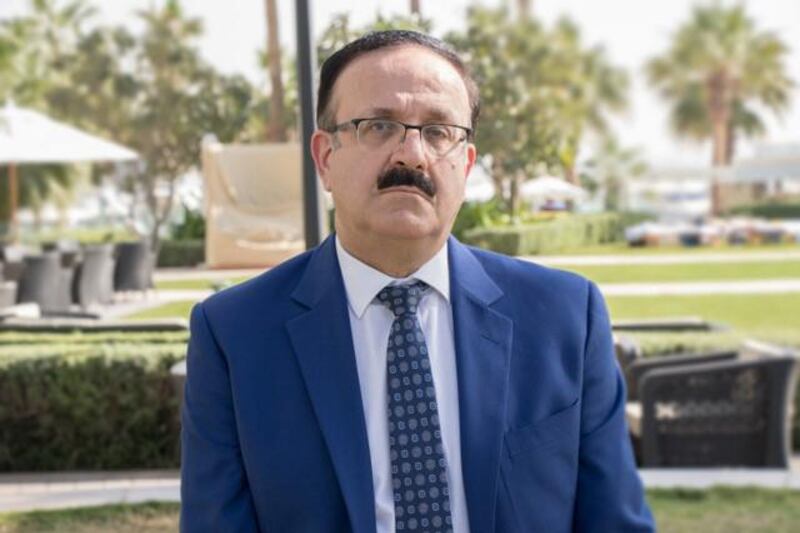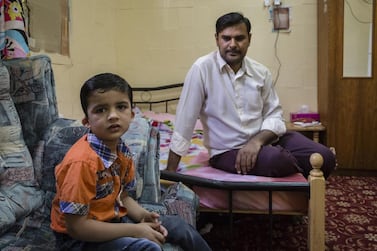Young people in the UAE are increasing their risk of hearing loss in later life due to prolonged exposure to loud music, experts have said.
Dr Jamal Kassouma, an ear, nose and throat constant at Dubai Hospital, warned playing blaring sounds through headphones could cause irreparable damage.
Speaking on World Hearing Day on Tuesday, the specialist urged youngsters to seek regular check-ups every six months.
According to the World Health Organisation, 1.1 billion people aged 12 to 35 worldwide are at risk of hearing loss due to exposure to loud noise.
“More exposure to loud noise through headphones for many hours a day could be contributing to this problem,” Dr Kassouma said.
“It can effect hearing and by the time they are in their 30s they will find they have symptoms of hearing impairments.
“Persistent loud noise can damage the ability to pick up high frequency sound, such as in speech.
“The problem is usually reversible by avoiding loud noises, otherwise they would normally require a hearing aid in later life.”
A small online survey of 502 people from the UAE conducted in January found 13 per cent of those under 24 suspected they had some form of hearing loss.
The study, commissioned by cochlear implant manufacturers Med-El, asked what noises people felt were most likely to trigger impaired hearing.
Loud music was blamed as a source of hearing loss by 28 per cent of respondents.
A third said traffic was the most likely to cause damage, while 36 per cent blamed car horns and 29 per cent cited vehicle alarms.
Dr Kassouma said Dubai Hospital screened all newborns for hearing loss, but that older children and young adults were less likely to get their hearing checked.
He said more than 500 cochlear implants had been given to patients at the hospital since 2013, with the majority going to children.
“Early intervention can prevent the need for surgeries or implants in many cases,” he said.
“In patients with sudden hearing loss, the first line of treatment is to provide medication for six months.
“If hearing does not recover within that time and if it is moderate to severe, a hearing aid is helpful.”
Giscard Bechara, director of Starkey hearing-aids at Dubai airport free zone, said signs of hearing damage included a ringing sensation or regularly asking people to repeat themselves.
“Loud music on earphones can cause nerve damage and subsequently lead to hearing loss,” he said.
“We expect to start seeing people suffer from hearing loss at even younger ages than before.
“It’s important to use hearing protection around loud sounds and turn the volume down on the TV, radio and music.”







